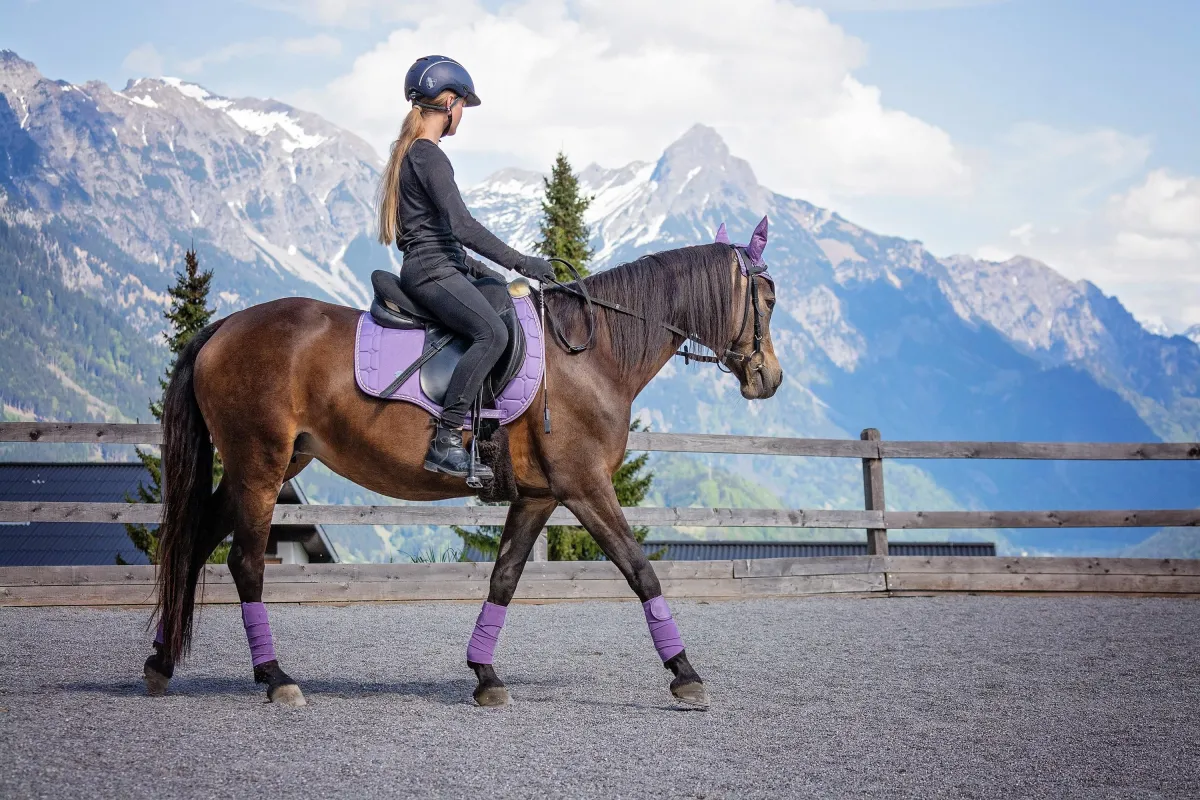
5 Hidden Causes of Riding Fear
5 Hidden Causes of Riding Fear (And What to Do About Them)
Riding fear can sneak up on even the most experienced equestrians. One moment, you're confidently cantering through a field — the next, your body is frozen, your thoughts are racing, and every muscle is bracing for disaster.
If you’ve ever felt like you “shouldn’t” be afraid — that your fear is irrational or embarrassing — you’re not alone. And more importantly: you’re not broken.
As a sports hypnotist, trauma informed coach, and riding instructor, I’ve worked with countless riders who thought they just needed to “push through it” or “get over it.” But riding fear isn’t just in your head — and it’s not about willpower. It often stems from hidden causes most people never consider.
Let’s uncover a few of them:
1. Your nervous system is doing its job — a little too well.
Fear is a protective response. If your brain has ever tagged riding as dangerous — due to a fall, close call, or even something you witnessed — it will signal your body to freeze, flee, or fight.
What to do: Instead of fighting your fear, learn to regulate your nervous system. Gentle breathing, grounding techniques, and trauma-aware approaches (like Equihypnosis) can help your body feel safe again.
2. Your boundaries are being disrespected.
Fear often shows up when your personal space, pace, or readiness isn’t being honored. Maybe a trainer pushed you too hard, a barnmate badmouthed you, or someone dismissed your hesitation. But maybe it's not even happening at the barn. You could experience that at your work and have more fear at the barn. When others ignore your "no," your body learns it’s not safe to relax — even when you’re technically in control.
What to do: Start paying close attention to when fear spikes. Are you setting healthy boundaries and are they being respected? Reclaim your boundaries — even if it’s uncomfortable. You’re allowed to say, “This is too much,” and mean it.
3. Your fear isn’t even yours.
Did your parent get nervous when you rode? Did a trainer tell you to “toughen up” after a fall? Sometimes, we carry other people’s anxiety or internalize unhelpful messages.
What to do: Begin to separate what’s truly yours from what was passed down. Hypnosis and mindset work can help you rewrite those old stories.
4. You’re physically tense — and your body remembers.
Fear can live in your muscles, breath, and posture. You might not even realize how much tension you’re holding until you get on a horse.
What to do: Somatic work, movement practices, and riding-specific hypnosis can help release physical fear responses so you can ride with softness and flow again.
5. You’ve lost trust — in yourself or your horse.
Trust is the foundation of confident riding. When it’s cracked (by an accident, inconsistent training, or poor coaching), fear fills the gap.
What to do: Rebuild trust step by step. That might mean walking in-hand, riding with a friend, or working with a coach who sees you as a whole person — not just a rider.
You’re not weak. You’re wise.
Riding fear is often your body’s way of asking for healing, safety, and support — not shame or pressure.
If any of this resonates, I wrote my new book Equihypnosis: Essential Techniques for Managing Riding Fear just for you. It’s filled with powerful tools from my work as a hypnotist, therapist, and horsewoman — all designed to help you ride with confidence again.
